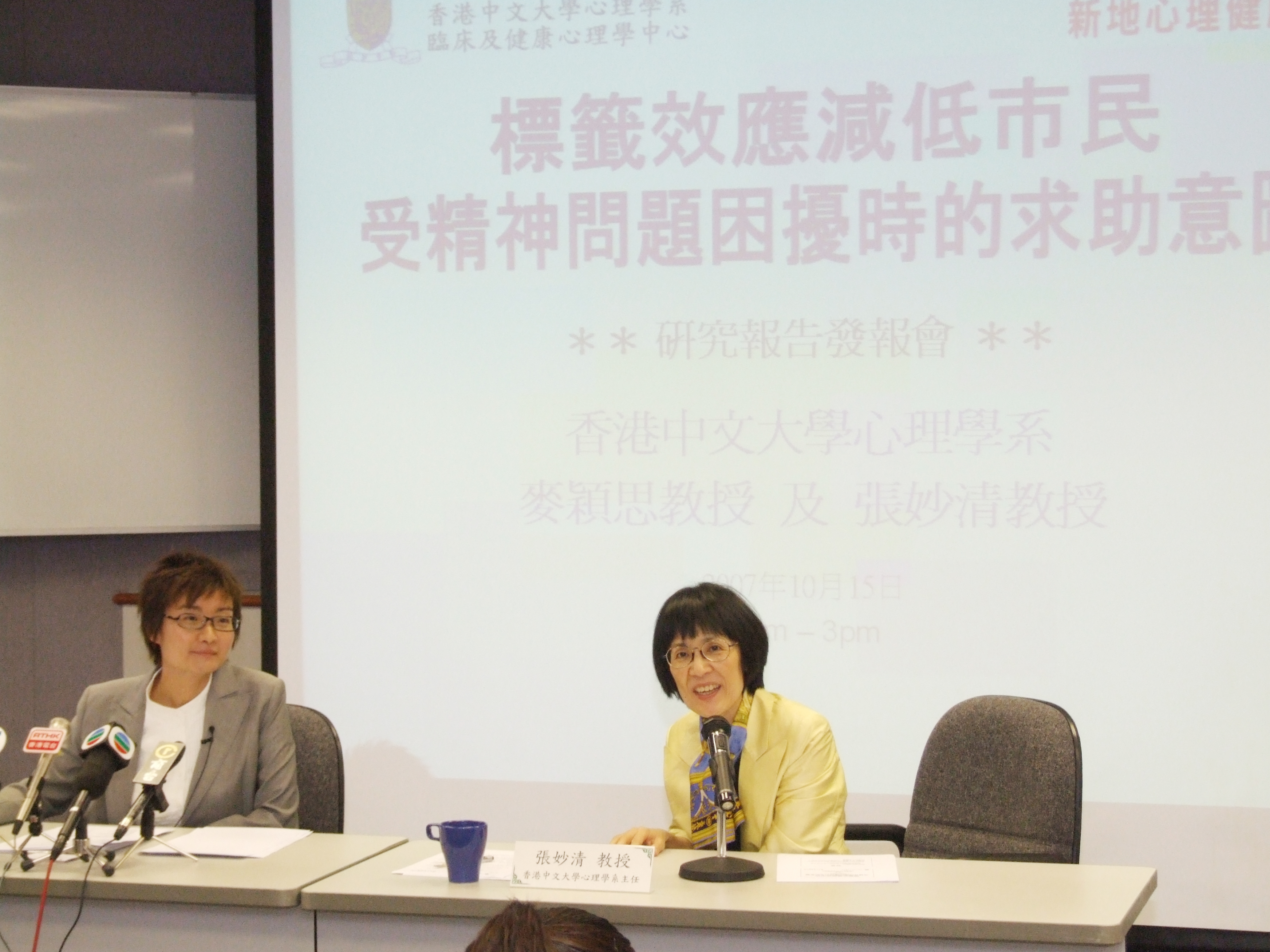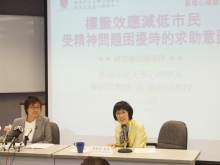CUHK
News Centre
CUHK Finds Stigma Lowers Likelihood of Help Sought for Mental Health Problems and Launches Stigma Reduction Programme under SHKP Mental Health Alliance
Quite a number of resources have been invested in educating the public about mental illness and promoting mental health in society in recent years, but public stigmatization of mental illness still remains.
The Psychology Department of the Chinese University of Hong Kong (CUHK) carried out research on the stigmatization of mental illness. The study aimed at identifying possible social cognitive factors that may contribute to the development of public stigma and shedding light on possible routes to effectively reduce stigmatization by the public. A total of 941 respondents were interviewed during home visits by random sampling from 18 districts.
The study found that the sex, age and educational level of the respondents did not affect their understanding of the cause and consequence of the illness, stigma of mental illness, and intention to seek help if they were plagued by mental health problems in the future. Respondents also seemed more likely to stigmatize mental illness if they held traditional Chinese cultural beliefs, believed the consequence of mental illness was great and that it was beyond sufferers’ personal control, and lacked understanding of mental illness (Appendix – Diagram 1).
Compared with the low stigmatization group, respondents in the high stigmatization group had a negative understanding of mental illness. They had less understanding of mental illness; they believed it could not be cured within a short time; they also believed the consequences of mental illness were more serious and that the illness was beyond the sufferers’ personal control. They tended to distance themselves from stigmatized individuals, increasing their social distance from them. They also indicated less likelihood of seeking help if they were plagued by mental health problems in the future (Appendix – Table 1). The study also found that around 30% of respondents in the high stigmatization group believed the cause of mental illness was related to destiny, feng shui, and retribution. Traditional Chinese cultural beliefs had a greater effect on their thinking (Appendix – Table 2). In the high stigmatization group, those who were more biased against mental illness sufferers also tended to keep a distance from them, and were less tolerant of any kind of contact with them. For instance, over 50% of the respondents did not want to live in the same building or work in the same company as mental illness sufferers. Sixty-five percent were unwilling to be friends of sufferers. And about 80% of the high stigmatization group would not invite friends with mental illness to their homes or rent out property to former mental health patients.
In the low stigmatization group, over 70% were willing to work in the same company as individuals with mental illness, while 67% were willing to live in the same building. About 66% were willing to be friends with them, and 45% would rent out property to former mental health sufferers (Appendix – Table 3).
Stigma not only hampers the development of mental health rehabilitation services in the community and increases the social distance between the public and mental health patients; it also lowers people’s likelihood to seek help for mental health problems, thereby preventing sufferers from receiving early intervention. The study shows that to reduce the effects of stigmatization, the influence of cultural beliefs must be dealt with and accurate information must be promoted, such as mental illness can be treated by means of psychological therapy and psychiatric therapy. Efforts should also be made to enhance public understanding of the capacity for self-control of mental health sufferers, and to increase opportunities for interpersonal contact between the two in order to eliminate bias.
Based on the research findings, the Psychology Department of CUHK will launch the two-phase Stigma Reduction Programme under the SHKP Mental Health Alliance project funded by Sun Hung Kai Properties. Commencing mid-October, phase 1 provides mental health education at several secondary schools as a trial. The aim is to dispel myths about mental illness held by students and enable them to understand that mental health sufferers are ordinary people with special needs, who conduct their lives very similarly to ordinary people. During phase 2, which will be rolled out in February 2008, an educational kit with a DVD-Rom, a powerpoint presentation, an information booklet and a teacher’s guide will be distributed to all secondary schools in Hong Kong for free. The objective is to convey to students the idea that using mental health services is normal behaviour and to dispel myths they may hold about mental health.



